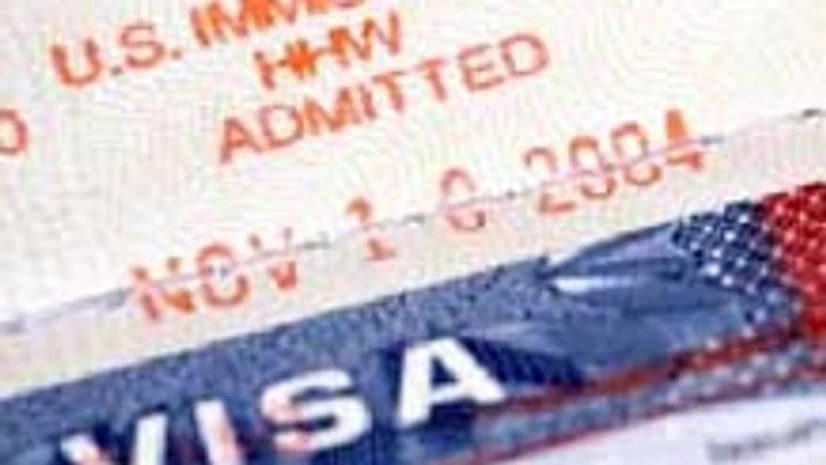Highly qualified Indian Americans, a large number of whom are in a long agonising Green Card wait, with a stable financial status could benefit under a new draft proposal under which an immigrant seeking any kind of government welfare benefit could be denied legal US residency.
A copy of the draft report, obtained and released by The Washington Post, indicates that relatively younger group of those foreign nationals applying for permanent legal residency or Green Card would have a much better chance of their petitions being approved by the US Citizenship and Immigration Services (USCIS) rather than those who are closer to their retirement age.
Running into more than 200 pages, the draft proposal of the Department of Homeland Security gives a much positive indication of approving the green card proposal of those foreign nationals, who have a well-established job, are young and pay their taxes, have health insurance and thus unlikely to become a financial burden on the federal or State governments.
The department has not indicated as to when it plans to make the draft public and seek comments from the public.
The draft proposal indicates those below 18 and above 50 years of age, might have difficulties in getting Green Card. It might become difficult for those applying family-sponsored visas, unless they are able to prove that they have enough resources at their end to sustain themselves and not be a burden on the governmental resources.
"Assets and resources including through employment income is an important factor in determining whether a person may use or receive public benefits in the future," the draft says.
More From This Section
Public benefits, as defined in this proposed rule, are benefits that are either means-tested (i.e., dependent on assets, resources, and/or income) or intended to help the individual beneficiary meet basic living requirements, such as housing, food, utilities, and medical care. By definition, the alien's assets and resources are relevant to the alien's likelihood to use or receive public benefits, it said.
At a minimum, foreign national should be able to support himself/herself and any dependents with assets, resources, or annual income equal to at least 125 per cent of the federal poverty guidelines (FPG) based on the household size, DHS said.
As of February 2018, within the US, 125 per cent of FPG ranges from approximately USD 20,300 for a family of two, through USD 51,650 for a family of eight.
Hundreds of Indian Americans seeking green card, on an average earn much more than this FPG guidelines, are more educated than the national average and poverty rate is lowest among all major ethnic minority communities in the US.
While considering for a green card or legal residency application, USCIS among other things would consider the applicants assets and resources including review of their annual gross income (i.e., all sources of income before deductions), any additional income or support to the alien from another person or source during the most recent full year (for example, income of a dependent or a spouse who is not a dependent).
It also includes cash assets and resources, including as reflected in checking and savings account statements; and non-cash assets and resources that can be converted into cash within 12 months. Such non-cash assets may include real estate holdings, securities, and retirement and educational accounts, as well as any other assets that can be easily converted into cash, as per the draft proposal.
Noting that a person with a stable financial status may be less likely to use or receive public benefits, DHS proposes that when considering an individual's financial status, it will consider whether any aspect of the their financial status other than the assets and resources, such as liabilities or past reliance on public benefits, makes them more or less likely to become a public charge.
As such DHS has proposed to consider receipt or use of public benefits as a negative factor in the totality of the circumstances because it is indicative of a weak financial status and likelihood that the foreign national will become a public charge.
As part of establishing the financial status factor of a foreign applicant, DHS has also proposed to check the credit history of the applicant.
Noting that an applicant's education and skills are mandatory factors that must be considered in the public charge determination, DHS said in general, a foreign nationals with educational credentials and skills is more employable and less likely to become a public charge. As such DHS would consider whether the alien has sufficient education and skills to obtain or maintain full-time employment, if authorized for employment.
According to the draft proposal, USCIS will review a foreign applicant's history of employment; the high school degree or higher education; occupational skills, certifications, or licenses; and proficiency in English or another language as relevant to working full-time.
"The administration is committed to enforcing existing immigration law, which is clearly intended to protect the American taxpayer by ensuring that foreign nationals seeking to enter or remain in the US are self-sufficient," DHS spokesperson Katie Waldman said.
Any proposed changes would ensure that the government takes the responsibility of being good stewards of taxpayer funds seriously and adjudicates immigration benefit requests in accordance with the law, Waldman added.

)
